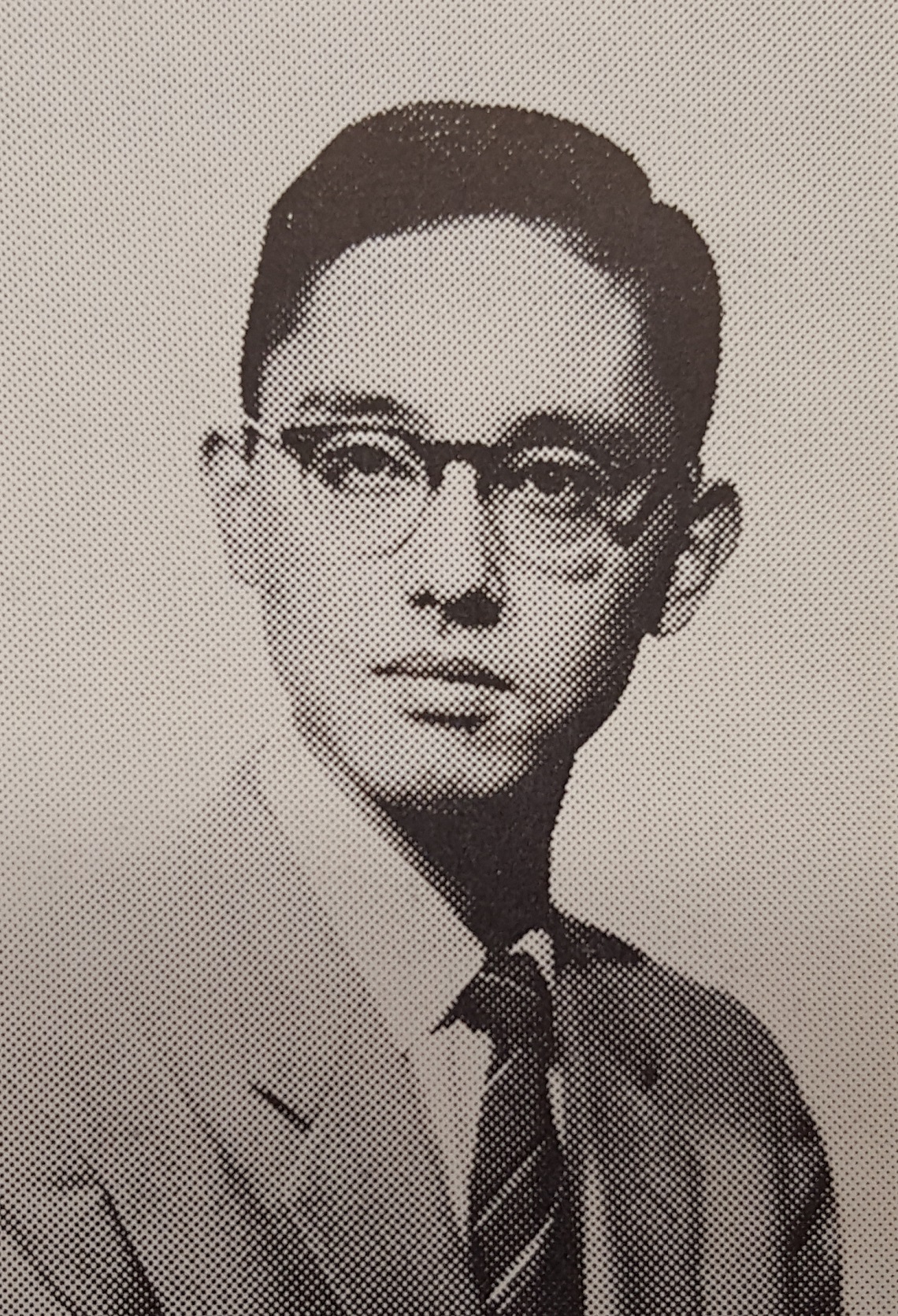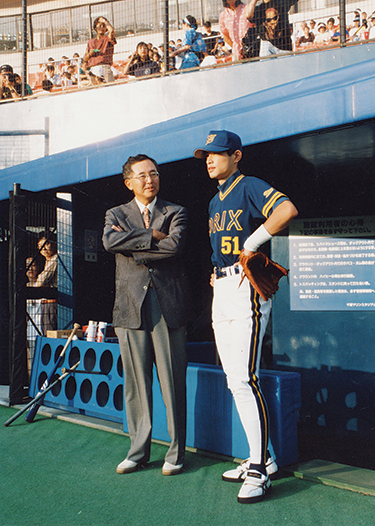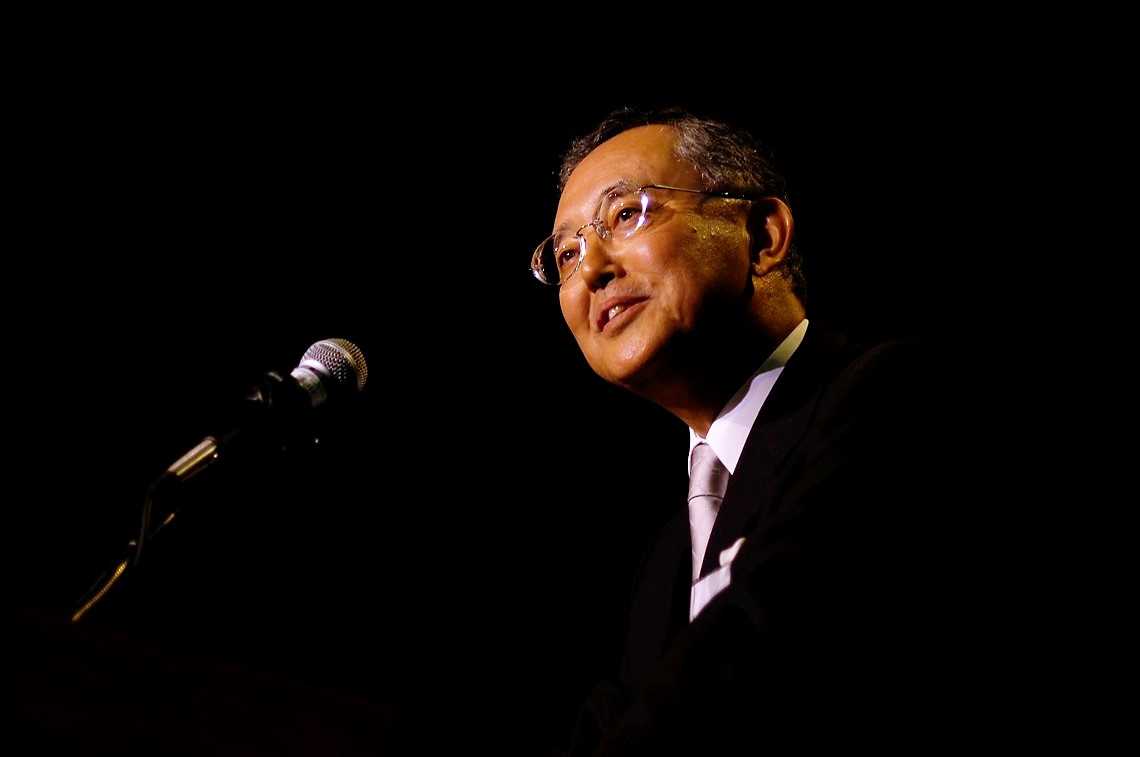Global Innovator
Yoshihiko Miyauchi led Orix to the top of Japan's economy—and Ichiro to the Seattle Mariners
In the summer of 1958, Yoshihiko Miyauchi (MBA 1960) arrived in San Francisco after a two-week voyage across the Pacific on a Japanese freighter. He was 22 years old, had just completed his undergraduate studies in Japan, and was setting foot in the U.S. for the first time—en route to Seattle and the University of Washington Business School.
“I was astonished by the gap between America and Japan at that time,” Miyauchi recalls, “even though my own country had been steadily rebuilding its economy since the end of the war. I was amazed by the freeways and the number of trucks and cars—and also by small things, like disposable tissue paper and myriad flavors of ice cream. But perhaps I was most surprised,” Miyauchi laughs, “by the excellent English everyone spoke.”
Miyauchi was encouraged to attend the University of Washington by his father, who had imported lumber from Seattle before the war and retained many friends in the region.
One of a kind
Miyauchi began his management education with more than a little trepidation. He was the youngest member of his MBA class, one of the few without work experience, and the only Asian student. Determined to succeed, Miyauchi threw himself into his studies.

“For the next two years my day-to-day routine centered on three locations: the dormitory, the library and the classroom. Everything I learned was entirely new to me. Looking back, I wonder how I was able to manage—with so little knowledge of English and the way American companies did business.”
But Miyauchi did more than manage. He qualified for a UW scholarship available to foreign students that reimbursed him for all of his tuition—a scholarship for which he remains grateful to this day.
ORIX rising
Upon completing his MBA, Miyauchi returned to Japan and started his business career with a trading company. Four years later he joined a small startup with just 13 employees, Orient Leasing Co. Ltd. (now ORIX Corporation), that helped pioneer the lease financing of machinery and industrial equipment for Japan’s booming manufacturing base. The company expanded rapidly during the 1960s and ’70s, diversifying the range of its products and services to include ships and aircraft, along with real estate finance and development.
Miyauchi became president and CEO of ORIX in 1980, a position he held until assuming his present post as chairman and CEO in 2000. He has overseen the growth of ORIX into one of Japan’s top corporations—an integrated financial services powerhouse with more than 15,000 employees and a reputation for innovation and providing exceptional value to shareholders. Last year, ORIX celebrated its 40th anniversary—along with record revenues and earnings.
Miyauchi credits his education at the UW Business School for management insights that helped shape his extraordinary career.
“What I learned in class during my experience in an entirely foreign culture formed the foundation of my philosophy as a businessman,” Miyauchi says. “Rather than relying solely on the discipline and unchanging business practices typical of Japan, I saw that our companies could develop new areas of growth by seeking out untapped opportunities and creating new forms of value. I explored many different ideas, experimented with them, and admittedly, failed on many occasions. I learned from this experience that it’s important for management to make decisions that keep failure to an acceptable limit while maximizing success—rather than just weighing the probability of success or failure.”
Introducing Ichiro
One of Miyauchi’s more adventuresome business decisions was his company’s purchase of a Japanese baseball team in 1988. ORIX was expanding its services into the consumer market at the time, so getting brand recognition through a popular baseball team seemed to make good sense.
 The investment paid some unexpected dividends—not only to ORIX—but to the Seattle Mariners.
The investment paid some unexpected dividends—not only to ORIX—but to the Seattle Mariners.
It seems that the ORIX BlueWave, as the team is called, drafted a fourth-round pitcher in 1992 out of high school by the name of Ichiro Suzuki. After one year in the minors, and switching from pitching to the outfield (just as Babe Ruth had done early in his career), Ichiro became a superstar in Japanese baseball for the next seven years, until he moved to the Mariners in 2000—where he’s proven himself as one of the best hitters and most consistent performers in major league baseball.
Mr. Deregulation
In addition to being one of Japan’s top corporate leaders, Miyauchi is proud of his reputation as “Mr. Deregulation.” He’s a strong advocate of regulatory reform and serves as President of the Council for Promoting Regulatory Reform, an advisory board to the Prime Minister of Japan. He serves as a director on the boards of major corporations, including Fuji Xerox Corporation, AOZORA Bank, Ltd., Mercian Corporation, Showa Shell Sekiyu K.K., and Sony Corporation.

He also serves on the UW Business School’s Advisory Board, and is one of a select group of Asian leaders that advise UW President Mark Emmert on developments in that region. Last fall, the UW Business School gave Miyauchi its Distinguished Leadership Award in honor of his career achievements and community service.
The Seattle connection remains very strong for Miyauchi. He met his wife Nobuko here when he first attended the UW Business School. His daughter studied art at the UW, and his son earned his MBA here in 1995.
Educating the modern manager
When Miyauchi looks at management education today as practiced by most business schools in the U.S., he sees several shortcomings. “Students are taught lots of technical skills,” he says, “but just having knowledge doesn’t translate into being a good manager. You need a broader appreciation of ethics, of what life’s all about, and what really motivates human beings—which is always more than just money or success. You need to understand the employee as a whole person.”
Miyauchi applauds the current efforts of the UW Business School to turn out well-rounded graduates by placing more emphasis on ethics, communication, team building, and understanding the complex, multi-cultural world we live in.
“The world in the 21st century is becoming a much smaller place, “Miyauchi says. “Each of us can play a part in making this smaller world a more prosperous, peaceful, and enjoyable place through business.”
Story written by Clark McCann.
